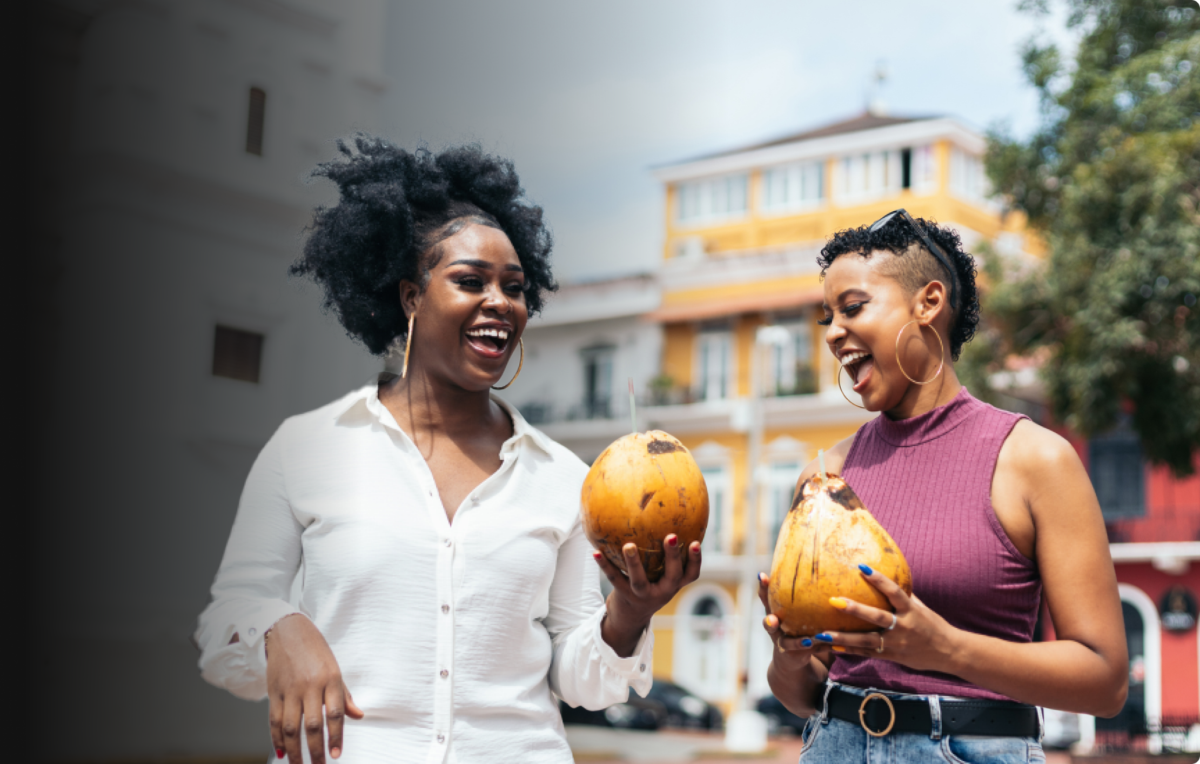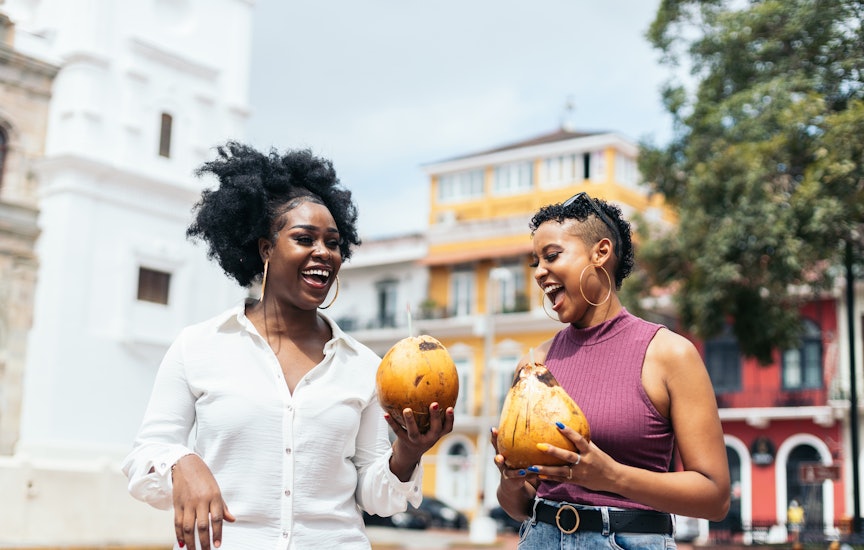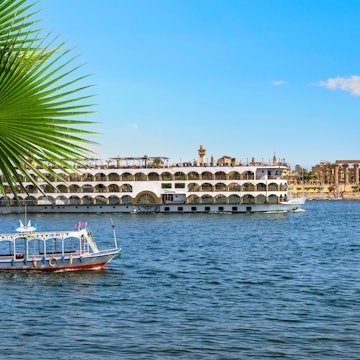
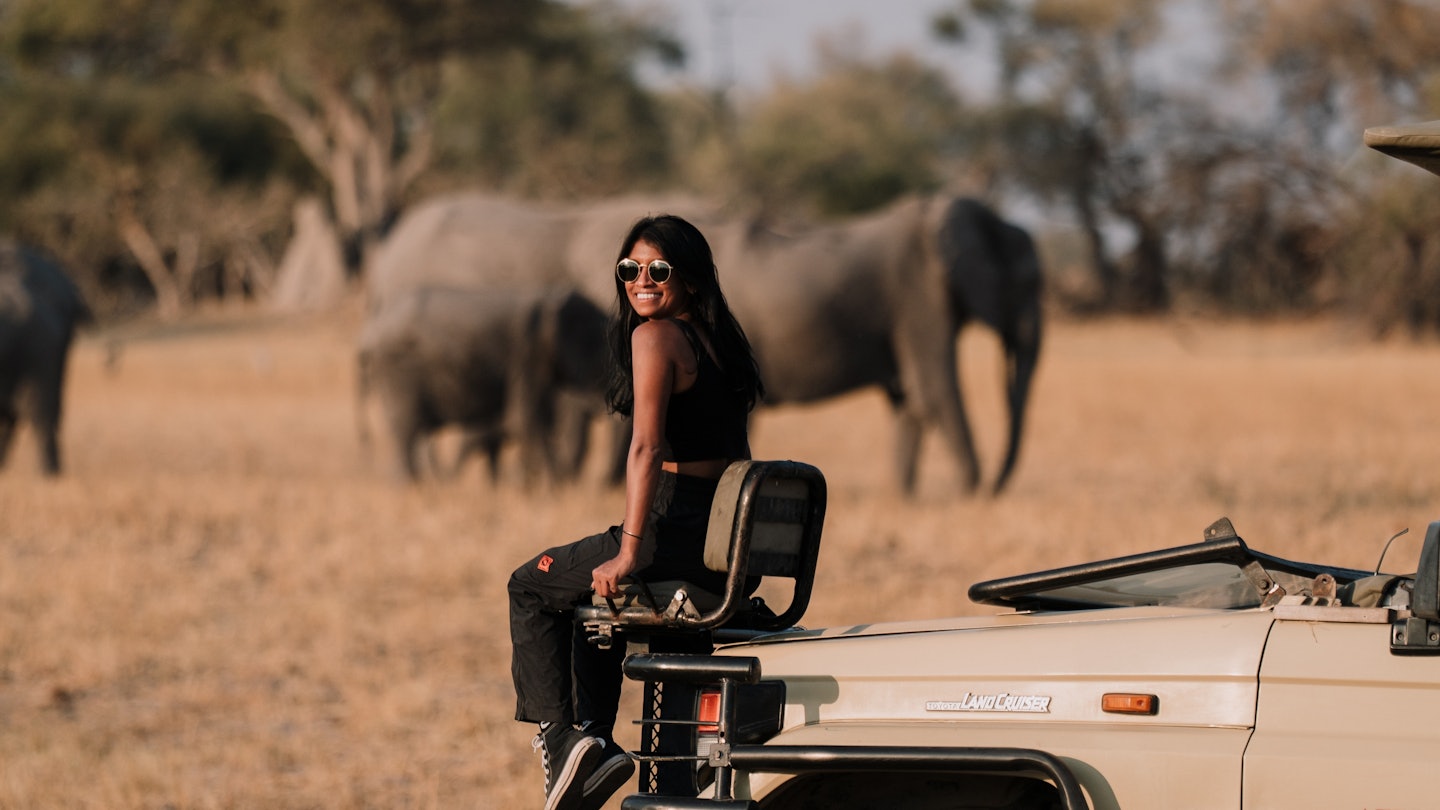
Writer Deepa Lakshmin in Botswana © Alice Greenfield
Lonely Planet's director of social media, Deepa Lakshmin, recently returned from a safari trip to Botswana. Here she shares the highlights of a trip filled with safari daytime drives and starry nights by the campfire.
Had you told 10-year-old me making s’mores at Girl Scout camp that I would one day camp in Botswana, mere steps away from elephants, lions and at least one leopard, I would have never believed you.
However, as Lonely Planet’s Director of Social Media, being out of my comfort zone is part and privilege of my job.
So last year, I joined Natucate and African Guide Academy (a guide training school) for a private wilderness experience in Botswana’s Okavango Delta. Renowned for its wildlife, this intact wetland in the Kalahari is also where Prince Harry and Meghan Markle had one of their early dates.
My trip was much more down to earth than theirs. I slept in a tent, for starters. I traveled with ecotourism adventures company Natucate, which meant this wasn’t a safari in the literal sense. It wasn’t about seeing as many animals as possible; it was about seeing what was right in front of me.
So I tracked big cats and made insanely long eye contact with elephants. I went on multiple daily game drives and walked through the bush. I got up close and personal with the delta’s rich biodiversity. Here’s how you can do the same.
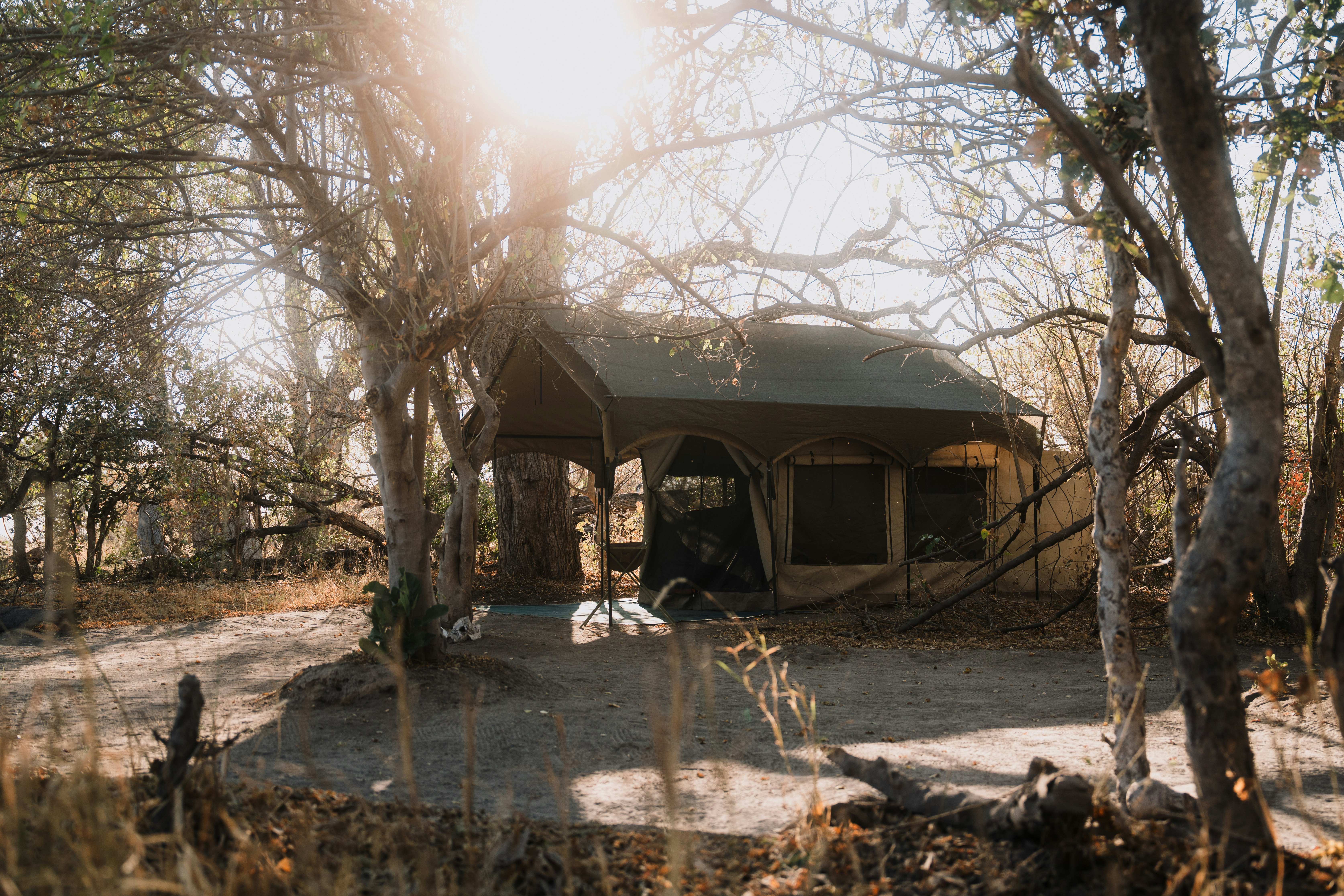
Where did you stay? What was the vibe?
There’s no glamping here! The tents at Camp Kwapa have the bare necessities: twin beds, an outdoor flush toilet and a bucket shower. The people who typically stay here are those training with the African Guide Academy. So for a city girl like me, with minimal camping experience, I went in with low expectations. In truth, I assumed there’d be no running water, so I was happy to see a makeshift bathroom.
Each afternoon, staff filled buckets with warm water for us to shower. My tentmate would do a cautionary check for spiders before we went to sleep, too. Flashlights were a must; once the sun went down, you couldn't see a thing – not the big cats that could be lurking outside your tent. Out there, you’re the guest in their home.

What was the most scenic experience of the trip?
The waterholes brought all the elephants to the yard. During a game drive, we’d pull up and watch them come in from all angles for a drink or a bath. I tried to tally them once but lost count after 30. I’ve never seen so many elephants in one place at one time.
It was a privilege to watch the eldest males show off their tusks and the kiddos run through their mama’s legs. Their trunks perked up and sniffed us out as a vibe check. (Spoiler: we passed.)
But it was also a bit of a sad scene, knowing that these waterholes – made and maintained by humans – are the difference between life and death for these majestic, highly intelligent creatures. Due to a variety of factors like climate change, water levels are falling, leading to a harsh drought in this part of the delta.
Our local guide, Alan McSmith, told us this area was normally flooded this time of year. We should’ve been floating through it on traditional mokoros (canoes). Yet there we were, our feet on the ground, dry brown grass crunching beneath our shoes.

Favorite activity from the trip?
Rule number one at camp: don’t walk around alone after dark. There was a wire around the grounds to keep elephants out, but other wildlife came and went freely, including a leopard whose tracks often showed up onsite. Big cats are mostly active at dusk and dawn, so it’s harder to spot them when the sun’s up.
One night around the campfire, we got wind that our resident leopard was visiting. There was no time to go back to our tents to get our cameras or an extra fleece; we hopped in our vehicle immediately to try and see her. It was scary but also exhilarating to know we were so close. After 20 minutes or so of searching, when finally saw her. It felt like a once-in-a-lifetime moment.
I said earlier that this trip wasn’t about chasing animals, but this didn’t feel like a chase. She was loafing on the ground, just like my pet cat does on my couch. She let us get a good look at her before slinking away into the tall grass.

What is the one thing that you did not expect?
How empty it was. I’ve been lucky enough to safari through Kenya and Tanzania in the Masai Mara and Ngorongoro Crater. In 2017, I witnessed the Great Migration – millions of wildebeest crossing the Serengeti plus the predators that hunt them. Yes, I saw lots of animals. I also saw lots of people, sitting and waiting in countless open-air jeeps with their cameras at the ready.
One guide would get word of cheetahs on the prowl and he’d hit the gas. Other vehicles would then follow him in a mad dash to get the best viewing spot. We were the paparazzi, and the cheetahs were the celebrities trying to live their lives in peace.
I get it, though. I’d be bummed if I spent thousands of dollars to spot lions and not get to see lions. But there’s also beauty in the silence and stillness – and that’s what this wilderness experience offered. Besides the other campers and Kwapa staff, we didn’t see another soul the entire week. This part of the delta was ours alone to explore and appreciate; it’s rare to see wilderness so untouched.

Best tip for someone who wants to plan the same trip?
Layers are your friend. It gets hot during the day, especially when you’re on bush walks where there’s zero shade, but the wind gets chilly on early-morning game drives. Sometimes we’d be so cold that we’d bring blankets from our tents with us and wear them like robes.
Also, if you’re a coffee snob like me who can’t function without it, bring your coffee grounds so you’re not stuck with instant. We even brought a percolator, which the camp’s staff kindly used to brew up our joe over the fire. Those cups tasted like luxury.
Lastly, skip this particular experience if you’re in it for the bragging rights. Leave your ego at home. Instead, come with an open mind and be ready to see the world as you’ve never seen it before.
Deepa Lakshmin traveled to Botswana at the invitation of Dark Green PR and Natucate. Lonely Planet staff members do not accept freebies in exchange for positive coverage.






